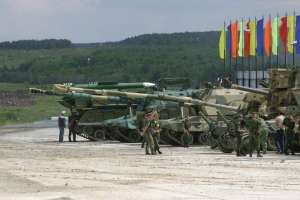Reporter: Mr. Dan Radu Ruşanu, it is an unprecedented decision in terms of the market share of the company which you have placed under financial reorganization through special administration. The first questions are why ASTRA and why now?
Dan Radu Ruşanu: I will start with the second question: why now. Because we have a report of the audit department of the ASF and because we have a Notification from the Oversight Division of the ASF. They have been debated on Tuesday by the Board of the ASF, and we have made the decisions which were required: we have found that the management of the company and the risks taken on by the managers have led the company precisely to this kind of situation, in which the only rational measure was to decide the financial reorganization through special administration. What alternative was there? Allow it to operate on its own as it pleased? Allow it to get to the point where it would have been too big to be saved? To be just as passive as the Commission for the Oversight of Insurers (CSA) and to feed what the insurance market, not us, called "a toxic policy when it comes to insurance"? Categorically, the answer is no. The option of pretending that we aren't seeing what is happening in the market is a thing of the past. We have asked ourselves this question, the insurance industry has asked itself that question too, how was it possible that the problems encountered at ASTRA which were reported repeatedly didn't attract the attention of the regulator. My answer is: they did.
The former CSA (the Commission for the Oversight of Insurers) performed an audit at ASTRA at the end of 2012. The result? A plan of measures which had December 31st, 2013 as a deadline. The sad thing is that the former CSA did not rigorously monitor the compliance with that plan of measures. And when the ASF was formed, the former president of the CSA, Daniel Tudor, still had his prerogatives in the insurance field, and it is precisely because of that continuity and of his expertise, that he had every reason to find out whether ASTRA was taking the necessary steps to comply with the plan of measures. Such tolerance was unusual and I can speak now about an opposition to checking whether Astra complied with those measures, but without being able to find an explanation for it. I can say that this opposition disappeared the moment the Parliament appointed the new management of the ASF - in November 2013. Once the resistance disappeared, you can see what we have decided today (ed. note: three days ago).
Reporter: And yet, based on what you are saying, the ASF has tolerated this state of things until November...
Dan Radu Ruşanu: I have explained to you this excessive tolerance "earlier". The question was not whether the ASF tolerated it, but how long ago did the supervisor begin tolerating it, whether it was the CSA, or the ASF. How long ago, you ask? Look at Tuesday's decisions: one of them refers to the annulment of the insurance claims pertaining to the contracts that expired and the booking of the results in the company's accounting.
Please note, however, we are not talking about claims that would distort the financial statements of ASTRA filed during the existence of the ASF. No. We are speaking about old claims, and the former CSA could have taken such a measure a long time ago. It didn't. Another measure concerns the taking of the steps necessary to speed up the repayment of the loans granted within the group and the restriction on granting new loans. No one is saying that a new company shouldn't support itself including through maintaining its public perception. But from that to financing a media group within the ASTRA group, we think that such a decision was arguable, to say the least when it comes to the money originating from the insurance premiums that was spent on financing that media group, at the very least. We acknowledged those signals from the audit report or from the note of the Supervisory Department. We have made that information available to the special administrator - KPMG Advisory and we are convinced that the special administrator will know what to do with it and will make all the decisions that are required.
Reporter: You did not answer my question: why Astra?
Dan Radu Ruşanu: I will answer - we are looking at the situation of the complaints received from the insured in 2013: we are talking about 10,000 petitions from the poly holders. It's no secret that two thirds of them come from the insurance customers of two companies: Euroins and Astra. The numbers of petitions for the policy holders of other companies have weights that range between 4 and 7%. In the case of Euroins we have taken the required steps in the second half of the year and which at the time were considered as unprecedented - the suspension of the rights to issue Civil Liability Vehicle Insurance (RCA) policies.
In the case of ASTRA, please note that the actions we took this time, were taken following all the steps stipulated in the law. In the case of other companies, we have levied unprecedented fines. Other audit reports have come in or are going to come in for debate on the Board of the ASF. We will also make public the conclusions of the report concerning the decisions that were made in the case of other companies such as the Insurance - Reinsurance EXIM România, another company that "escaped" the audits of the CSA since its creation and until the time of our audit. And I want to tell the policyholders that all the decisions will be made and are subordinated to the principle which I have enunciated in the beginning of the year: stricter compliance on the insurance market. What does that mean for the insurance policy holders? I've said it in Tuesday's press conference: the audits of the insurance companies will continue and will be very strict, especially when it comes to the honoring on time of the obligations taken on by the insurance companies towards the policy holders in the case of mandatory contracts, specifically the RCA policies and those for homes. We are letting the policyholders and the insurers know that we are doing our job.
• "We are doing more than the former commissions did, and for lower pay"
Reporter: And you're getting paid very high salaries...
Dan Radu Ruşanu: It is true that this debate in the media isn't helping things. My main concern however, is not the fact that the salaries and the two types of bonuses granted by the ASF, according to the labor contract at the level of the institution (one equal to one monthly wage and the other with amounts ranging from zero to the equivalent of a monthly wage), have appeared in the press. My concern is the fact that, if that kind of information has appeared in the press (while we have never made a secret of our wages, which have been established according to the law by which the institution was created), other, confidential pieces of information may show up in other places. I am not referring here to the press. I mean in the offices of competitors. This is my real concern. As for the level of the wages, some people will definitely say that they are extremely high, we will say, quoting the law for the creation of the institution, that they are granted according to the law, and others will say that it is comparable to the level of salaries in the financial sector. It is a contentious issue, and will continue to be so. The legitimate questions are the following: what are these amounts like compared to the salaries paid during the time of the previous regulator and what does the ASF do to earn all that money. And my response will be: they are lower, and in 2014 they will be set even lower. For 2014, budget for salaries and other payments of that nature has been reduced by more than 15% compared to the moment of the merger of the former supervision commissions. We are speaking already about an trend and the only ones who can't see it are the ones who don't want to. And as for the question of what we are doing to earn that money, the answer is: we are doing more than the former commissions, and for less money. We have made decisions in the case of Euroins. We have made decisions in the case of Astra. We have levied unprecedented fines in 2013. The moment the DNA (National Anti-corruption Department) announced it was investigating the manner in which the former president of the Insurance Oversight Commission, who is a defendant in this case, omitted taking into consideration the need for a share capital increase for Carpatica, a need which was evident from the manner in which Carpatica intended to conduct its reinsurance, we have immediately decided to reevaluate the insurance contracts for Carpatica Asig. And once we complete that reevaluation, we are going to issue a press release. In other words, we are making an orderly adjustment of the insurance market, limiting the excesses and the distortions that we are made possible in the past due to a certain short-sightedness of the "regulator". I think that it is very clear for everybody: the market excesses were not created after the creation of the ASF (of April 29th, 2013). They have structural roots and the simple fact that we are breaking them down now does not mean that it was the ASF that generated them, like some people are trying to make it look. Quite the contrary. The ASF is not tolerating them. Just like the discussion concerning the "wives" of the ASF: we were required by law to take over the staff of the former CNVM, CSSPP, CSA. Including the wives. Most of the wives had been working for 8 years in the former Commissions. Should we just fire them just because of them being the wives of certain people? I don't think it would be normal, or legal. In fact, I have confirmed these hires made by the CSA or the CNVM from the very beginning of the ASF, including to the BURSA newspaper itself. It is somewhat amusing to note that three days ago, there was a list of at least 20 wives employed by the ASF. I have made the clarifications again and now I see that the list has been cut down to just two people hired since the creation of the ASF that are also the son or daughter of someone. Both work as advisors. Except that all these adjustments take time. What we are doing right now is creating filters. For the first time since the existence of supervision in Romania, together with PWC Audit, we are introducing performance criteria for managers and employees. And performance is reviewed bi-annually. Whoever doesn't meet the requirements, be they wife, husband, son or nephew, will have to very simply go look for work somewhere else. But the industry, the consumers of services and media, and the politicians themselves need to understand that it is a process that doesn't get built over night. We accelerate it and go through it. But we can't afford to make mistakes through ad-hoc measures.
Reporter: And, going back to ASTRA. What should the policy holders know?
Dan Radu Ruşanu: ASTRA clients have to know that all the policies issued by the company are valid from the time of their issue until that of their expiration. The policy holders need to know that the payments deriving from insurance contracts will be decided within the legal delays by the special administrator, out of the financial resources of ASTRA and out of the amounts resulting from the activities which the administrator will perform. The NBR has confirmed that there is no systemic risk generated by the exposure of Astra in the banking system. Our analyses show that the risk of contamination is confined in the insurance sector. I would like it that in the end, the company would succeed in its financial recovery and we would get the confirmation, so that at the time of such a decision, of financial turnaround through special administration, Astra has not already reached the stage where it is ""too big to be saved''. And for the entire market, we want discipline. We want all the insurance companies to comply with the rules and regulations in effect. If they don't, the ASF will take steps towards sanctioning them, that could go as far as revoking their license. It is a process that requires time, but this process has begun. And it is irreversible.



















































